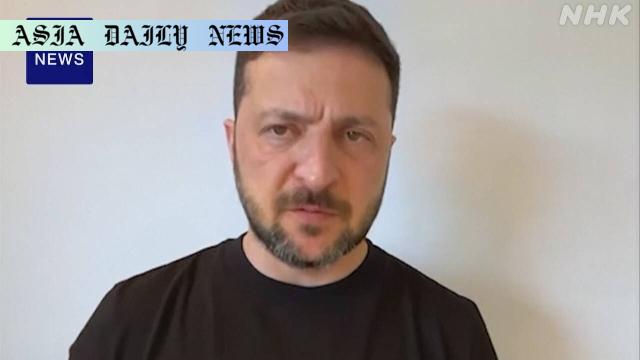Ceasefire: Ukraine proposes new talks with Russia to ensure peace.
- Ukraine proposes a new round of ceasefire talks with Russia.
- President Zelenskyy emphasizes achieving lasting peace.
- Past talks revealed significant differences on key terms.

Ukraine Proposes Renewed Ceasefire Talks with Russia
In a significant development aimed at resolving the ongoing conflict, Ukrainian President Volodymyr Zelenskyy announced that Ukraine has reached out to Russia to propose a fresh round of direct ceasefire talks. Spearheaded by Rustem Umerov, the Secretary of the National Security and Defense Council, the initiative reflects Ukraine’s commitment to securing an enduring peace in the region. Zelenskyy emphasized the importance of doing everything possible to achieve a ceasefire, underlining the critical role of high-level leadership discussions in bridging gaps and building trust.
The exact date and venue for the talks remain undisclosed. However, the Ukrainian initiative comes after previous direct discussions in May and a follow-up round in Istanbul last month, which featured tentative agreements, including prisoner-of-war exchanges. Yet, despite some progress, significant differences persist. Ukraine seeks a 30-day unconditional ceasefire to ease tensions and foster a renewed sense of stability. Meanwhile, Russia’s demands for Ukraine’s complete withdrawal from four occupied regions highlight the challenges ahead in reaching a consensus.
Key Context from Previous Talks
When the two nations last met for direct talks in May—following a three-year hiatus—the tone was cautiously optimistic but underpinned by deep-seated divergences. During the Istanbul talks held last month, the negotiations diverged sharply on fundamental points such as territorial control and military posture. Despite agreeing to prisoner exchanges, these talks fell short of securing even a temporary reduction in hostilities, let alone a lasting ceasefire framework.
The Ukrainian side remains firmly committed to pursuing comprehensive peace agreements. President Zelenskyy’s fresh proposal for dialogue aims to broaden these efforts. Yet, with Russia’s insistence on territorial concessions, the scope for compromise appears limited, suggesting that these renewed efforts will require creative negotiation strategies backed by international support.
The Road Ahead to Achieving Peace
Crafting a durable peace will require meticulous diplomacy, robust international mediation, and mutual goodwill. Western powers, alongside neutral international stakeholders, could play decisive roles in brokering agreements that address the legitimate concerns of both nations. Ukraine’s focus on securing stability underscores its regional and global significance as an independent state, while Russia’s demands reflect a broader strategy of reasserting influence over former Soviet territories. Reconciling these contrasting ambitions will demand skillful negotiation, innovative compromise, and unyielding resolve from both sides.
Furthermore, public sentiment in both nations remains a crucial factor. For Ukraine, public support for actively defending national sovereignty reinforces its firm stance in negotiations. On the other hand, Russian leadership must weigh domestic opinion and international reactions to their aggressive policies. Achieving a balanced resolution will likely entail gradual, phased agreements, allowing both sides to take incremental steps toward de-escalation while safeguarding core interests.



Commentary
The Importance of Restoring Peace
The Ukrainian proposal for renewed ceasefire talks with Russia could not be timelier. With the humanitarian costs mounting after years of conflict, both nations face a moral imperative to prioritize dialogue over discord. President Zelenskyy’s willingness to engage in direct discussions signals his commitment to fostering peace and stability in a region that has endured endless instability. Although the challenges are daunting, his proactive stance offers a glimmer of hope amid ongoing geopolitical struggles.
Challenges in Breaking the Deadlock
The differing stances of Ukraine and Russia continue to pose a significant hurdle. Ukraine’s desire for an unconditional 30-day ceasefire reflects its efforts to create a conducive environment for ongoing peace discussions. On the other hand, Russia’s territorial demands complicate matters, diminishing trust and stagnating progress. For meaningful advancements, both sides must engage in honest dialogue, setting aside hardline positions to identify avenues for compromise. International actors can assist as mediators, ensuring that talks remain constructive and focused.
The Need for Strategic Diplomacy
Reaching a durable solution will require more than just symbolic meetings; it demands strategic diplomacy that addresses both immediate concerns and long-term aspirations. Every step forward represents progress, no matter how small. However, patience and perseverance will be key in navigating this complex geopolitical terrain. Leaders from Ukraine and Russia must exhibit the highest degrees of statesmanship by prioritizing unity and de-escalation. Ultimately, their efforts will determine the prospects for sustainable peace in the region.